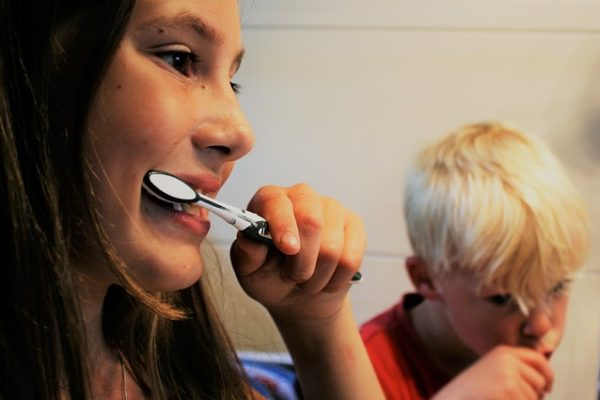Just because you cannot see a baby’s teeth does not mean that they are not there. Good dental care starts before a baby’s first tooth erupts.
Here are some guidelines to follow to take good care of kid’s teeth:
Infancy:
- Even before the baby begins teething, consider running a clean damp fabric or washcloth over the gums to get rid of harmful bacteria. Carefully wipe your baby’s gums particularly after feedings and before bedtime.
- At the time the baby gets his or her teeth, gently brush them using an infant toothbrush. Use fluoride-based toothpaste approved by the American Dental Association.
- Once the baby’s teeth touch one another, you can start flossing in between them.
- Even if you see no dental problem, the child must visit the dentist at the age of one. The reason behind this is because the dentist can provide useful advice regarding proper tooth care for babies, teething, thumb sucking and fluoride.
- As much as possible, only fill your baby’s bottle with water, breast milk, or formula. It advisable to refrain from giving your baby soda, fruit juices, or other sugary drinks. Make sure to provide the baby with a well-balanced diet. Always encourage your baby to consume savory foods like pasta and veggies and avoid adding sugar to his diet.
Toddlerhood:
- When the child reaches the age of two, the child has to learn to spit out while brushing. It is advised to give the child water to swish and spit, which can make swallowing toothpaste less probable.
- Children age three and above should only utilize a pea-sized amount of toothpaste that contains fluoride.
- If your child needs to take medicine, discuss with his/her pediatrician if there are sugar-free versions for these.
- Brush your kid’s teeth using small, gentle circular movements that focus on the area where the gums and teeth meet. Remember that during teething, the baby’s gums will feel tender, so it is very imperative to be very gentle.
Childhood:
- It is essential to supervise children who are younger than six-years-old while brushing since they are more apt to swallow toothpaste.
- If you can, allow your child to watch you as you brush your teeth as frequent as possible. In so doing, this shall aid him/her to get accustomed to the idea.
- Supervise your child as they brush their teeth on their own until they reach the age of eight.
The good news is that parents can refer to a dental hygienist or dentist for more guidance regarding providing the best oral care for children. You can work as a great teacher in promoting good dental care at a young age until the time they grow into an adult.

